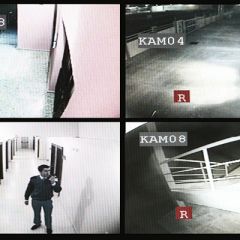Since 1999, when Illinois passed the Electronic Commerce Security Act (ECSA), Illinois has recognized electronic documents and electronic signatures. Over the last 22 years, the law on electronic documents and electronic signatures has remained largely unchanged—until this year, writes Ray Prather in his November Illinois Bar Journal article, “Sign, Sign Away.”
Illinois Bar Journal
-
November 8, 2021 | Practice News

-
November 1, 2021 | Practice News

“Technology keeps changing, except when it doesn’t,” writes Ed Finkel in the November Bar Journal’s cover story, “26 Tech Tips for Saving Money, Time, and Sanity.” It’s important, Finkel continues, to keep up with the changes that do take place and according to attorneys who participated in an ISBA CLE session held on June 24 called 60 Virtual Tips in 60 Minutes. The Illinois Bar Journal took in the session and curated 26 great tips from the program for November’s article.
-
October 25, 2021 | Practice News

How might Illinois take more seriously its Constitution’s directive of returning offenders of all ages to useful citizenship. In their October Illinois Bar Journal article, “Useful Sentencing,” Andrea D. Lyon and Hannah J. Brooks show how Illinois courts have interpreted this part of the state’s constitution in lockstep with the U.S. Supreme Court’s interpretations of the Eighth Amendment to the U.S. Constitution’s prohibition against “cruel and unusual” punishment—and how Illinois has seriously reassessed its position on sentencing in light of the major decisions on that subject from both the U.S. Supreme Court and the Illinois Supreme Court.
-
October 18, 2021 | Practice News

Eviction law has not changed drastically over the years, that is, until the COVID-19 pandemic. Since that time there have been significant, temporary changes in the law as a result of the Illinois and federal eviction moratoriums, Illinois Supreme Court orders, and the passage of new legislation. But as the pandemic wanes, eviction issues, and a lawyer’s need to understand the basics, will remain.
-
October 11, 2021 | Practice News

An emerging reality of the #MeToo era is the increased likelihood that you may have a client who will disclose sexual abuse. Attorneys have a duty to react thoughtfully and understand how to counsel a client who shares such sensitive information, write Caitlin K. Cervenka & Christine M. Crow in their October Illinois Bar Journal article, “Lawyering in the #MeToo Era.”
-
October 4, 2021 | Practice News

For the Illinois Bar Journal’s October cover story, the IBJ reached out to several ISBA members who’ve experienced threatening situations at the office and home. They shared their stories, how they reacted at the time, and what they’ve done since then to protect themselves, their families, and staff.
-
September 27, 2021 | Practice News

The Illinois Freedom of Information Act (FOIA) should be more than just an afterthought for businesses that transact with state and local governments or are subject to regulations requiring disclosures to such agencies. As William Cook and James Cook point out in their September Illinois Bar Journal article, “Business Information and Illinois FOIA requests,” unbeknownst to many businesses, as soon as a public body receives a FOIA request, sensitive business information (SBI) is potentially subject to disclosure, regardless of whether the requester is actually seeking SBI.
-
September 21, 2021 | Practice News

One of the most well-known and effective ways of impeaching witnesses is to confront them with a prior statement that is inconsistent with their trial testimony. However, practitioners must be wary of engaging in incomplete impeachment, which occurs when: 1) a party asks a witness about an alleged prior inconsistent statement; 2) the witness denies making the statement; and 3) the party fails to prove up the impeachment by introducing evidence that the statement was in fact made.
-
September 13, 2021 | Practice News

On July 20, 2020, the U.S. Court of Appeals for the Seventh Circuit held in United States v. Ruth that Illinois defines cocaine more broadly than the federal government. Because the Illinois definition of cocaine covers more than the corresponding federal definition, prior Illinois cocaine convictions can no longer be used to enhance a federal drug defendant’s mandatory minimum sentence. In his September Illinois Bar Journal article, “Cocaine Isn’t What It Used to Be,” Thomas Drysdale explores how sentencing enhancements are built into federal drug laws, how and when those enhancements can be applied, why Illinois cocaine convictions are no longer predicate offenses after United States v. Ruth, and what the potential consequences of Ruth will be going forward.
-
September 7, 2021 | Practice News

Yes, it can be challenging for smaller law firms and solo attorneys lacking a tech staff to keep on top of the latest in everything from videoconferencing, to social media, to running a practice virtually. But lawyers don’t need a lot of technological expertise to expand their digital toolkits. The cover article in September’s Illinois Bar Journal discusses how practitioners and smaller law firms can better serve clients by staying abreast of the latest technology. Technology is one of the themes of the ISBA’s annual Solo & Small Firm Conference (SSFC) on Sept. 30 and Oct. 1 and the IBJ interviewed several of the conference’s presenters for this article.

